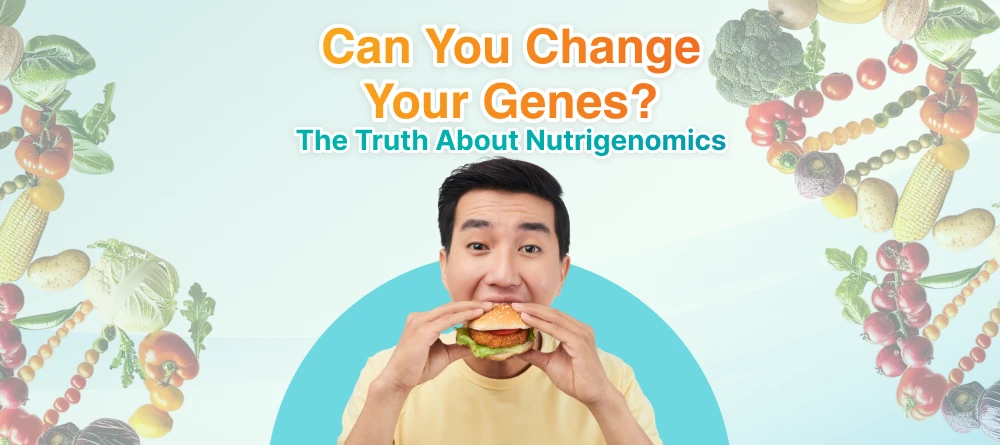


What if your food could “turn off” bad genes and “switch on” good ones? Nutrigenomics reveals how your diet can shape your gene expression—helping you fight fatigue, control weight, and prevent disease. Find out how to eat smarter for your DNA.
For years, we were told that our genes are unchangeable—fixed codes handed down from our parents that determine our health and destiny. But thanks to breakthroughs in nutrigenomics, we now know that your genes are more like switches than sentences. And the biggest switchboard? Your food.
Nutrigenomics is the science of how nutrients interact with your genes to influence your health, metabolism, and disease risk. This emerging field offers exciting possibilities: from customizing your diet to prevent chronic conditions, to reversing the effects of poor genetic traits through smart nutrition.
In this article, we explore how nutrigenomics works, what it can do for you, and how you can harness it today.
Nutrigenomics is the study of how nutrients and food compounds affect gene expression. It’s not about changing your DNA sequence—but rather how your genes are activated or suppressed by what you eat.
Where traditional nutrition offers general advice, nutrigenomics makes nutrition personalized, based on your unique genetic makeup.
Here are some of the most studied genes and how they respond to specific nutrients:
→ Standard folic acid might be ineffective.
→ Solution: Switch to methylfolate (5-MTHF) and increase leafy greens.
→ You may need to reduce simple carbs and sugar.
→ Solution: Emphasize lean proteins and low-glycemic vegetables.
→ You may retain dopamine longer, leading to anxiety.
→ Solution: Avoid excessive stimulants and support detox pathways with broccoli and magnesium.
You can’t change your genes, but you can change how your genes behave. By choosing foods that turn on protective genes and turn off harmful ones, you can:
This is especially powerful for conditions like:
Yes. Whether you're healthy and optimizing performance, or managing chronic illness, this approach helps you work with your biology—not against it.
It’s especially useful for:
GeneusDNA is at the forefront of nutrigenomic science, offering a personalized deep dive into how your genes interact with nutrients. Their platform reveals:
With GeneusDNA, you’ll get:
It’s time to stop guessing and start eating for your genes.
Written by: Dr. Arnond Kitnitchee